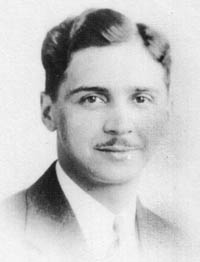Alfred Africano
From The Space Library
Contents |
Early Life
Alfred Africano was the son of Italian immigrants from Bari Italy. He attended Emerson high School in Union City and the Stevens Institute of Technology in Hoboken New Jersey. In 1929 Africano began working for the Interborough Rapid Transit public transportation system. He would work there until 1941.
American Interplanetary Society
In 1932 Africano would join the American Interplanetary Society and was member number 17 of that organisation. He would become the society's Technical Secretary. He would be instrumental in changing the society's name to the American Rocket Society. In 1936 he submitted his paper The Design of A Stratosphere Rocket into the annual competition for the REP-Hirsch prize. The paper was created from the studies he had done monitoring the various rocket launches undertaken by the society. He would be the first American to win the prestigious prize. He was elected to Vice-President of the society in 1936 and then to President in 1937.
World War 2
On February 1st 1942 Africano began working for the National Defense Research Committee. He was hired on the strength of his expertise gained working on rockets for the ARS. His work there included the perfecting of the troublesome Bazooka rocket propelled grenade.
Post War
After the war ended Africano became Head of the Thermodynamic and Thrust Chamber Design Group at the Curtiss-Wright Corporation. While working there the group built the large scale throttleable rocket engines used subsequently in the Bell X-2 rocket plane. From 1951-52 he taught rocket propulsion at New York University. In 1955 he became head of Chrysler's Power Plant Design Department for missiles. While in this position he worked on the Redstone Missile as supervisor in charge of the Rocketdyne engine installation. In 1957 he moved to TRW where he worked on the Thor, Titan and Atlas missiles.
Space Race
In 1962 he moved to North American Rockwell's Space Division as a Senior Technical Specialist. He stayed there for the rest of his professional career, retiring in 1970.
[{Category:Engineer]]

